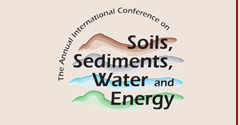Abstract
A soil remediation project using ex-situ thermal desorption to remove explosive compounds was modified at the latter stages of planning to include treatment of perchlorate. The design-build approach consisted of a bench scale study, which verified the treatability of perchlorate at baseline treatment conditions, and pilot scale studies, which helped refine the process parameters for full-scale treatment. During initial full-scale operations, a high number of treated soil batches failed to meet the project treatment criteria. Analytical results of samples collected from various stages along the treatment train indicated a potential for perchlorate contamination to by-pass the primary treatment process. Slower feed rates and higher operating temperatures did not show any conclusive positive impact on treatment efficiency. Recycling the particulates from the air pollution control equipment back into the feed soil was initially considered, but was deemed infeasible with the current equipment design configuration. A cost-effective solution was achieved by reducing the size of the treated soil sample batch volume, thereby reducing the amount of soil requiring re-treatment when occasional failures occurred. Future plant designs intended for treatment of perchlorate could potentially improve destruction efficiency by recycling particulates to the beginning of the process instead of the treated soil discharge.
Recommended Citation
Gangopadhyay, Shouvik; Nixon, Paul; and Michalak, Scott C.
(2010)
"Lessons Learned For Future Designs From Thermal Treatment Of Perchlorate In Soil,"
Proceedings of the Annual International Conference on Soils, Sediments, Water and Energy: Vol. 12, Article 17.
Available at:
https://scholarworks.umass.edu/soilsproceedings/vol12/iss1/17
